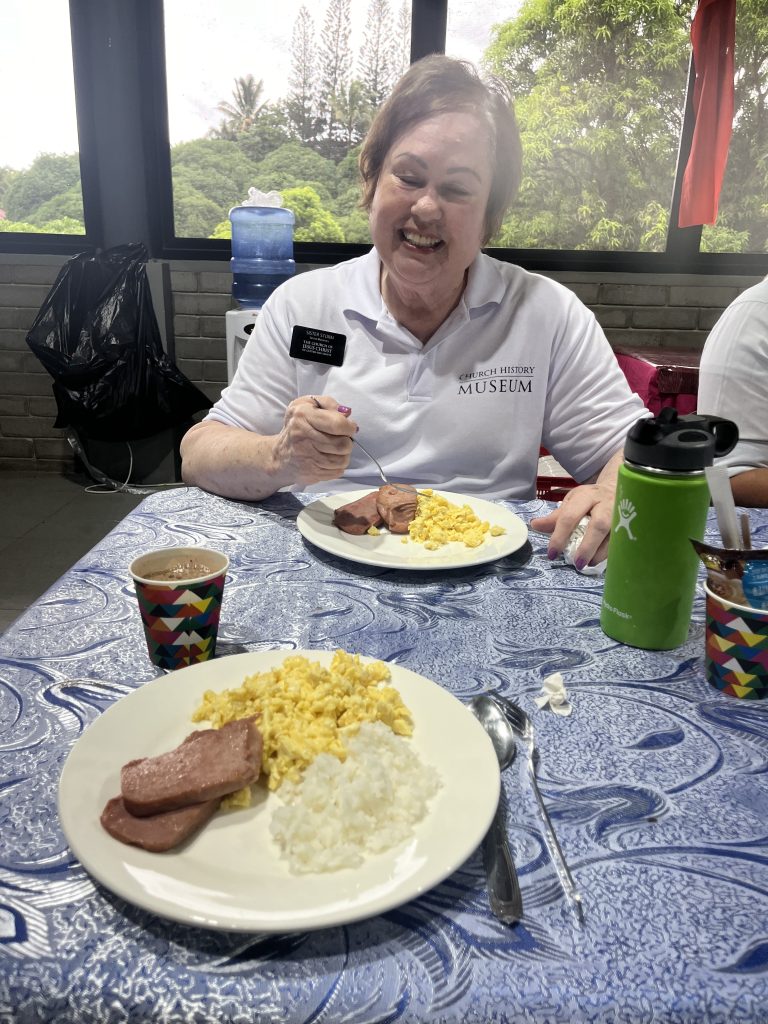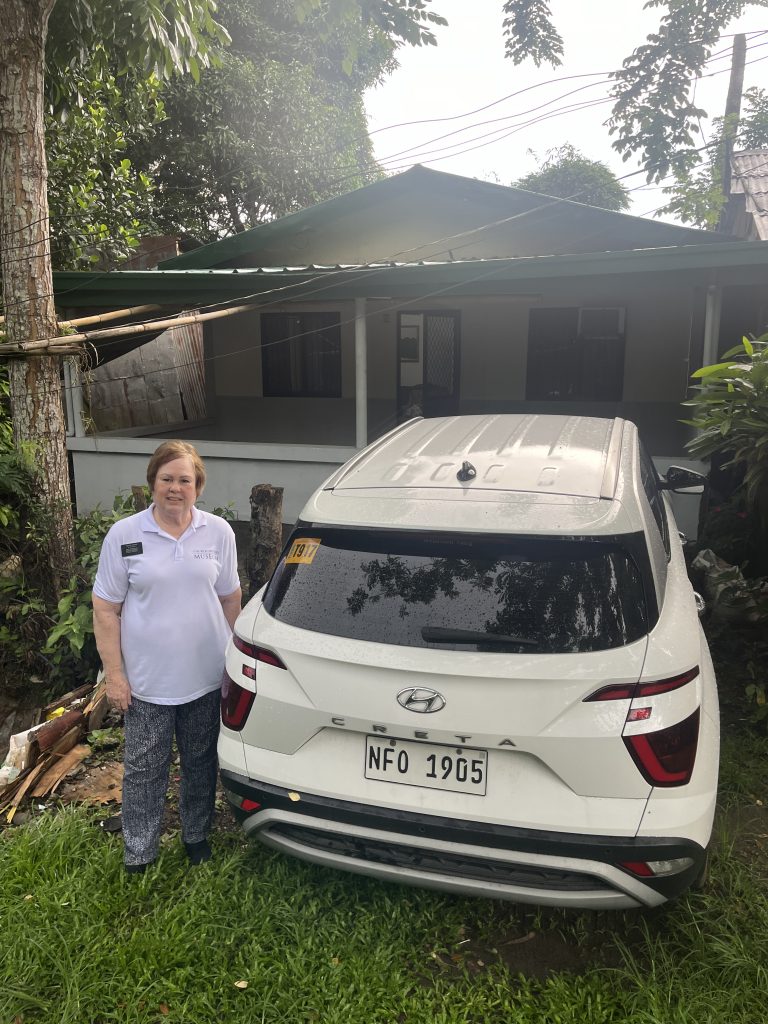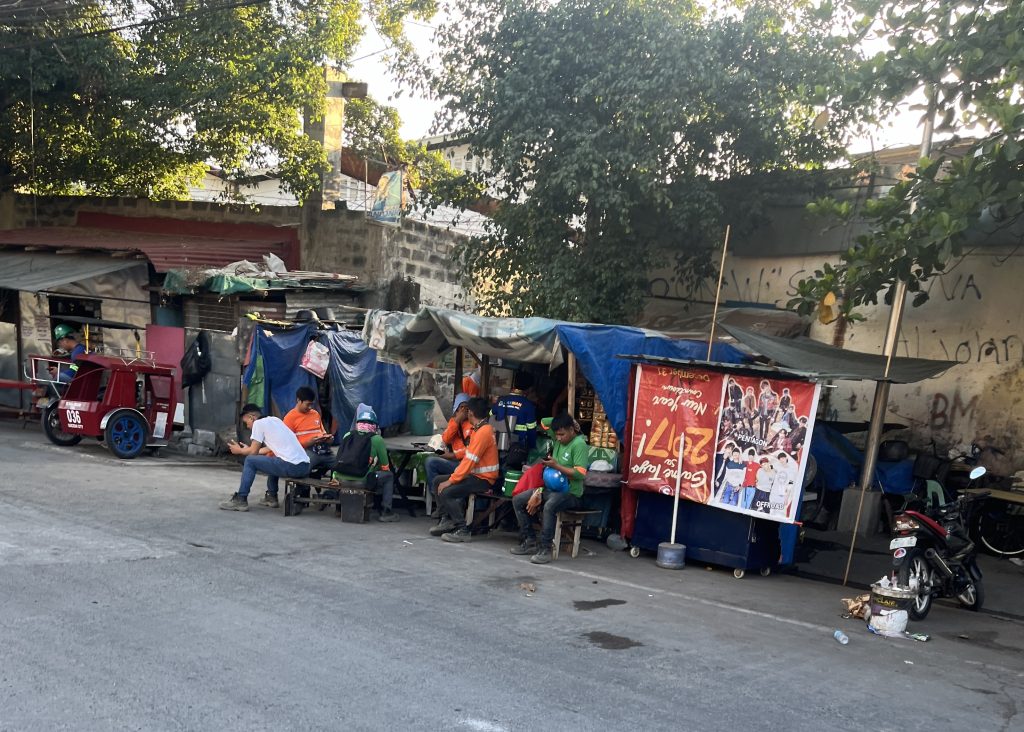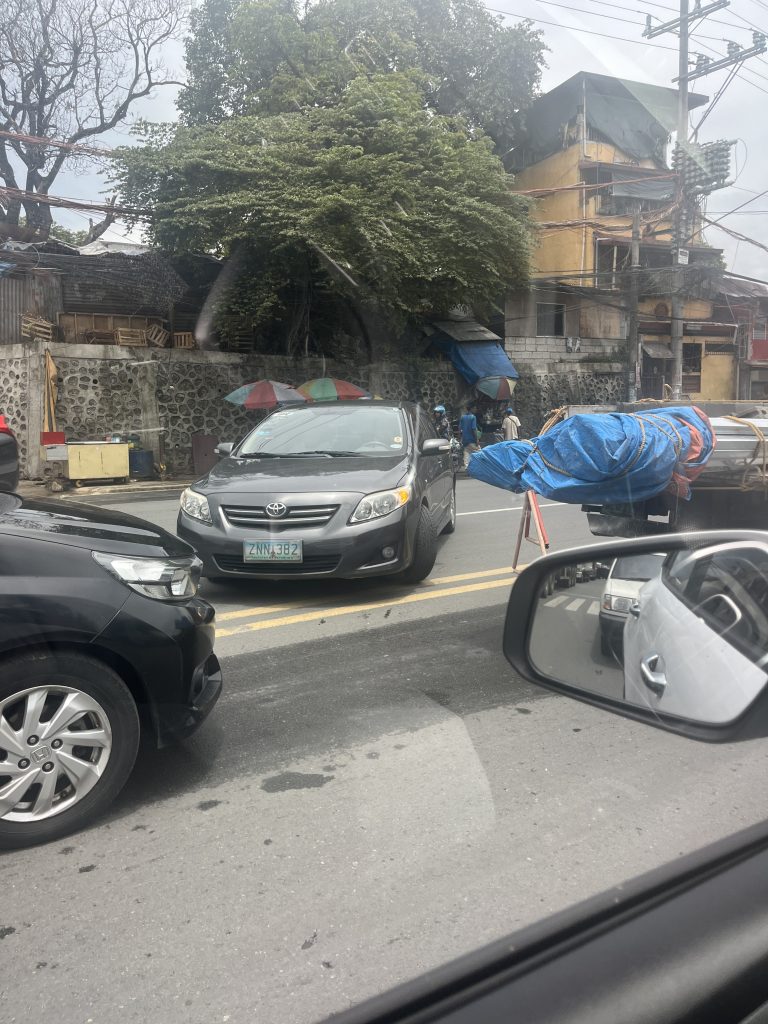Recently, we were privileged to interview an Area Seventy and former Mission Leader. Some of these interviews that we get to do are so inspiring.
Here is a summary of Julio Gaviola’s story and interview.
As a young man, after graduating from high school, he came from the provinces to Manila to find work at age 17. Coming to the city to find work, since there is little opportunity in the rural areas of the Philippines, is very common.
He arrived in Manila with no money. He stayed with an older brother who introduced him to a member of the Church. His family were staunch Catholics. During high school, he had considered studying to be a priest. After being introduced to the missionary, he had no intention of joining the Church and since he had been on a high school debate team, he was loaded for bear when he met with the missionaries.
After several lessons with the missionaries, his heart was touched by the spirit and eventually he joined the Church over the objections of his family. After his baptism, he continued to work saving money for college. Eventually, he decided to serve a mission. On his mission he learned to work hard, stay focused, and had a successful missionary experience.
Near the end of his mission, while serving in a small city named Dagupan, a small city about five hours north of Manila, he was appointed as the group leader to a small congregation of humble Filipino members. As his mission was ending, his mission president asked him to extend his mission for two or three months and work with the Dagupan group helping it continue to grow so it could become a branch of the Church when the first district in this are was organized. He never hesitated and extended his mission.
A few days after the Dagupan group was made a branch when the first district was organized, he received a telegram from the mission president asking him to immediately come to the mission home in Manila – about a five hour bus drive. After he arrived at the mission home, the mission president invited him into his office and told him that the day before his mother had passed away. He was devastated because he was very close to his mother.
You can imagine what his thoughts he might have been knowing that if he hadn’t extended his mission for several months at his mission president’s request, he would have been home with his mother during the last months of her life.
After digesting this news, he went home for the funeral. After spending a few weeks with his father, he decided to return to Manila because there was absolutely no work or future in the area where his parents lived.
After returning to Manila, he stayed with a mission friend’s family and immediately started looking for work. He had no formal work experience, but that didn’t stop him from going door to door looking for work. After seeing an advertisement in a local newspaper, he applied for a job at an electronics manufacturing company. After scheduling an interview, he met with several engineers. One of the engineers held up a small transistor and asked him if he knew what it was. He admitted to them that he had no idea what this small transistor was. They held up several other electronic components and of course he didn’t know what these were either.
After a few more minutes of discussion, the engineers stood up shaking their heads and started leave the room indicating that the interview was over. However, not to be deterred he boldly he told them that even though he didn’t know what the parts they had showed him were, he explained that he had just returned from being a missionary for the Church of Jesus Christ of Latter-Day Saints for the last two plus years where he learned to work hard, study, how to stay focused, and to do things he never thought he could do. One of the things that likely impressed the engineers was his English skills. During the time he served his mission, the gospel was taught in English vs. Tagalog and since he had many American missionary companions, his English skills were excellent.
Because of his boldness and his unwavering commitment to succeed, he told these engineers that if they would hire him he promised them they would never regret their decision because he would outwork, out study, and be their most committed and dedicated employee. Impressed with the tenacity of this young man, they look at each other and then told him they would give him a 90-day trial employment period.
To make a long story short, after the 90-day trial, his job was made permanent and true to his word he worked harder than anybody else and within a year, he was supervising other employees. Over the next two decades he became an operational manager of one of the divisions of the company that had over 600 employees. He became the right-hand man to the head of the division. A number of years later, his boss told him that he was leaving to start his own company. He asked if he join him. He did and he was successful at this position as well.
While his work life responsibilities expanded, his ecclesiastical service grew as well. He served in various branch and ward positions, was called as a Bishop, a stake president’s counselor, and eventually a stake president. After his service as stake president, he applied for a key position in the Church’s distribution center for the Philippines Area which also served other Asian countries as well.
This new job was a high-profile position and he achieved success here as well. After a few years in this new role, he was called to be a mission leader. After serving as a mission leader for three years, he returned to church employment and was called to be an Area Seventy.
During his service as an Area Seventy, he implemented some “out of the box” thinking programs such as purchasing (with his own money) chickens, goats, and pigs in partnership with local members who would raise these animals and share the first offspring with him. He would then give these “shared” animal’s off spring with other members in the area thereby perpetuating this program. He also started a program of self-reliance where member families would grow their own vegetable gardens to help feed themselves and sell their surplus at local markets. These gardens became the envy in the neighborhoods where the member of the Church lived. These types of programs were able to raise entire church communities out of the cycle of poverty.
The thing that impressed me most about this interview was that a penniless young man from a rural provinces was lifted out of poverty because he joined the Church and served unquestionably whenever and wherever he was asked.
While it’s true that there are inspiring stories we hear or read of individuals that start with pennies and become successful and wealthy. However, the thing I’ve come to realize is that the Church does this at scale and the amazing thing is that this story is not an isolated instance…it happens all of the time.
The ability to enable an individual to rise above their poverty and become monetarily and spiritually self-sufficient is one thing, but because those who commit, embrace, and live the gospel enables the Church to do this at “scale” enabling entire communities to break the poverty cycle in the Philippines over time.
We get to see this every day because we are involved in the “Mp Plan” program where Filipino missionaries come to the For Strength of Youth Campus at Tanay, a city about two hours east of Quezon City to spend three days planning their post mission life and setting goals. These missionaries are the future of the Church in the Philippines. After the “My Plan” experience these Filipino missionaries return home with skills, experience, confidence, and a commitment to serve the Lord. This attitude of these faithful return missionaries over the next few decades will see them marry, become parents, serve, and because of their focus on becoming their best self, a focus on becoming self-reliant, and become financially stable as their lives are transformed. It is one of the miracles of the gospel that blesses the Philippines and other nations as well.
As we conclude our interview, this now white-haired servant of the Lord is now retired and serves as a temple ordinance worker in the Manila Temple three days a week. The spirit during our interview was as strong as I have ever felt it in any of the interviews we have done, and we’ve had some great and inspirational interviews.
As Marcia and I talked after the interview, we marvel at the faithfulness of the Filipino people and especially these members and leaders we have the privilege to interview.
Critics can rail against the Church, but what we see on a daily basis is the fruits of a good tree. There is no doubt (absolutely zero doubt) in my mind of the truthfulness of the gospel and doctrine of Christ and what it does for people who follow its gospel precepts incorporating these precepts into their lives.
After interviews like this one, my heart swells within my bosom grateful for the opportunity to do what are called to do.
Flashback
When I was a kid, we often had Spam sandwiches in our sack lunch for school. Here in the Philippines, Spam is still a thing and often a part of the daily diet.

Breakfast in the Rizal Province at Tanay FSY Campus – Spam, eggs, and of course, plenty of white rice.

We often travel and have to stay locally because there are no hotels. Here is Marcia standing next to our car in front of our AirBnb. Yes, they have AirBnb rentals in the Philippines. We have learned that pictures on the AirBnb website are often much better than the place we reserved actually turned out to be. Also, we had another family staying with us….meet Lizzy (see the picture below). She had two other family members staying with us.

Lizzy keeping a watch at the AirBnb

A typical road side restaurant run by local Filipinos.
What I continue to learn about the Philippines and its people…..
On a recent trip back to Quezon City from the provinces, we hit traffic as we got closer to the city. The picture below is three lanes of traffic each way and the black car (below) just deciding to make a u-turn on a moments notice that held up traffic in both directions. U-turns can happen at anytime and anyplace.

Traffic rules here are different
Stop Signs
There are very few stop signs at intersections in the Philippines. Since there are no stop signs, this basically means that the fastest car into an intersection gets through faster. I’ve been involved in a total gridlock situation because cars from all four streets entered the intersection at once which results in basically a free for all and massive gridlock that takes a while to work its way out.
Marcia refuses to drive here.
Spiritual Thought: Whether you accept the gospel as truth, it makes little difference. Truth is truth and will always be truth. It’s you that is at a disadvantage.
Scripture of the Day: Mosiah 4:9 “…. if you believe all these things, see that ye do them.” (I’ve found this hard to put into practice)
